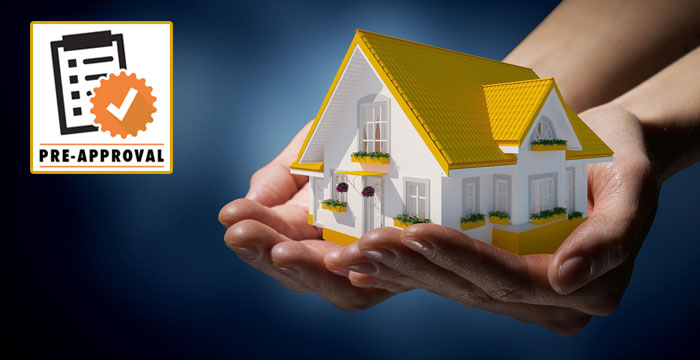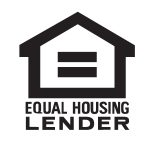Have you ever considered borrowing money against the equity in your home? Well, second mortgages are the ideal alternative for homeowners who wish to pay off their debts without having to pay mortgage insurance.
In this article, we will explore everything about second mortgages from their different types to how they can be a suitable financial solution for you. We will also be discussing the various financing options like cash-out refinancing or personal loans, so you can take the best decision possible.
If you’re considering a second mortgage, make sure to read this article to know the benefits & risks associated with a second mortgage.
What is a Second Mortgage?
It’s a kind of subordinate mortgage/lien obtained on a property with still the effect of a primary mortgage. It is backed up by the same collateral as the initial mortgage, which is often the home itself. That means the lender has the authority to seize the property if somehow the borrower is not able to pay the monthly installments.
“The reason it is called a Second Mortgage is that it’s the second loan that you have on your home, after your primary mortgage.”
Lien/ second mortgage is limited to a percentage of the equity you hold in the property. The difference between the current market value of the property and the outstanding debt on the original mortgage is referred to as equity. Unlike student loans or auto loans, second mortgages can be used to finance nearly anything including
- Home improvements
- Consolidate debt
- Additional significant expenses
Note: Remember that second mortgages come with higher loan fees and rates of interest due to the high-risk factor. Whereas the amount borrowed is lower than the primary mortgage.
How does a second mortgage work?
When you take out a second mortgage, it means you’re borrowing money against the equity you possess in your home. The amount you can borrow depends on
- Equity in your home and
- lender’s requirements.
The monthly payments on your second mortgage are typically paid as on your primary mortgage. Let’s see, how a second mortgage works:
Step 1: To Get Qualified for a second mortgage
To be eligible for a second mortgage, you must fulfill the lender’s set standards. This involves possessing
- A good credit score of 600,
- A stable income
- Debt to income ratio (lower than 43%)
- enough equity in your property (minimum 15-20%)
Step 2: To Fulfill the Loan terms
The lending conditions of a second mortgage are quite similar to those of an existing mortgage. So, all you need to do is agree to all the conditions set by a lender such as
- a repayment schedule,
- size of the down payment,
- interest rate, etc.
Step 3: Disbursement of funds
Once you get approved for a second mortgage, the lender will disburse the funds to you in a lump sum or installments. You can use the funds for a variety of purposes including
- Home improvements,
- Debt consolidation, or other
- Personal expenses.
Step 4: Loan Repayment
Likewise for a primary mortgage, you need to pay regular installments of your second mortgage. The payments are inclusive of both principal and rate of interest. The monthly installment is determined considering your original loan amount, interest rate, and repayment schedule.
Step 5: Know the Risks
A second mortgage comes with many risks including higher interest rates, the risk of foreclosure, reduced equity, additional fees, and limited options. So, it’s important to carefully consider these risks or you can explore alternative options.
Different Types of Second Mortgages:
Let’s discuss the various types of second mortgages, including
1. Home Equity Loans
In this type of second mortgage, homeowners use their home equity as collateral to borrow a fixed amount of money. Home equity loans typically offer a fixed repayment schedule and a fixed rate of interest.
2. Home Equity Line of Credit (HELOC)
A HELOC or revolving credit allows you to borrow money based on the size of equity in your home. It works like a credit card, where you can borrow and have to repay after a fixed interval. Keep in mind that the interest rate for HELOC can vary.
3. Piggyback Mortgage
With such type of second mortgage, you don’t need to pay private mortgage insurance (PMI). piggyback mortgage combines both the primary and second mortgage. The primary mortgage covers 80% of the home’s value, and the remaining 20% is covered by a piggyback mortgage.
4. Reverse Mortgage
A reverse mortgage is only available to homeowners who are 62 or older. Senior citizens can borrow money utilizing the equity in their houses using this type of second mortgage. The loan is not required to be returned until the borrower moves out or dies.
The Benefits Of A Second Mortgage:
A second mortgage can give you access to cash that you can use for home improvements, debt consolidation, or other expenses. Additionally, the interest you pay on a second mortgage may be tax deductible, depending on your specific situation. Let’s discuss this in detail!
Access to additional funds
With a second mortgage, you can easily make home improvements, pay off high-interest debt, or cover unexpected expenses.
Lower interest rates
since second mortgages are secured by your property, so they often have lower interest rates than other forms of loans such as credit cards or personal loans. This implies you might be able to save money on interest costs in the long run.
Tax deductions
With a second mortgage, you may be able to reduce your overall tax liability. But it depends on your current financial situation and goals.
Flexibility
Second mortgages enables you to take a lump sum loan or a line of credit that can be drawn when needed.
Opportunity to improve credit score
If you utilise the proceeds to pay off high-interest bills, a second mortgage might help you improve your credit score. You could even be able to get better loan conditions and save money on interest.
The Risks Associated With A Second Mortgage:
No doubt a second mortgage can provide access to additional funds, but at the same time it comes with unavoidable risks. So it becomes important to weigh all the risks with potential benefits. Including:
1. Higher interest rates
Second mortgages typically have higher interest rates than primary mortgages which will increase the size of your monthly payments and repayment period.
2. Risk of foreclosure
Similar to a primary mortgage, Lenders have the authority to foreclose on your house in case you become a defaulter.
3. Reduced equity
When taking a second mortgage, keep in mind that you’ll lose the equity in your property. This implies that refinancing or selling your house in the future will be more difficult.
4. High Fees
Second mortgages often come with additional expenses such as closing costs and appraisal fees, which increase the overall borrowing cost.
5. Limited options
A second mortgage might limit your options and will make the process more complicated If you want to sell your house or refinance your primary mortgage in the future.
Note: The second mortgage puts your home at risk if somehow you’re not able to pay your monthly installments on time. It’s better to consider other alternative options like a personal loan or a home equity line of credit if the weightage of risk is more than the benefits.
Second mortgage Vs. Refinance
Cash refinance and second mortgage are two different types of loans that homeowners can use to access the equity in their homes. Which is the better option for you depends on your current financial situation and goals. For example, the second mortgage is ideal for borrowers who need cash quickly, whereas refinance is best for homeowners who want lower interest rates and monthly payments. Below are some key differences between a second mortgage and a refinance:
- Purpose: A second mortgage is a loan taken against the equity in the home, whereas a refinance is a new primary mortgage that replaces the primary mortgage.
- Priority: Refinancing replaces the existing mortgage, and the second mortgage is subordinate to the first mortgage which means that the first mortgage has priority over the second mortgage in case of foreclosure or default.
- Interest Rates: Interest rates for a second mortgage typically come with a high rate of interest and fees as compared to cash refinancing.
- Loan terms: A second mortgage comes with shorter repayment as compared to refinance. Plus it requires a separate monthly payment. While cash refinancing offers flexible loan terms and typically involves extending the repayment term and rolling all payments into one.
- Closing costs: Both loan options may involve closing costs, but the cost associated with a second mortgage is usually lower than refinance.
FAQs about Second Mortgage?
How do I qualify for a second mortgage?
Make sure you have sufficient equity in your home, a steady income source, and an impressive credit score. Rest it depends on the lender’s decision. They may also consider your debt-to-income ratio and other such financial factors.
Can I use a second mortgage to pay off my first mortgage?
Yes, it’s possible, but not recommended by financial advisors. As second mortgages come with high loan fees and rates of interest which means you’ll end up paying more in the long run.
How much can I borrow with a second mortgage?
Typically, it depends on your lender and the equity you possess in your home. Most lenders will enable you to borrow up to 80%-90% of the equity in your house, less the amount owed on your primary mortgage.
How long does it take to get a second mortgage?
It is determined by your present financial condition as well as the lender’s criteria. The loan application and funding procedure often takes several weeks to a few months.
How do I choose a lender for my second mortgage?
Shop around to compare interest rates, fees, and other paperwork requirements acquired from multiple lenders. Read the evaluations and suggestions, and seek advice from friends and relatives.
How does a second mortgage affect my credit score?
A second mortgage will almost certainly raise your overall debt load. If you skip or are unable to make your monthly payments, your credit score is likely to get lowered.
What Do You Need To Get A Second Mortgage?
To get qualified for a second mortgage, make sure you meet the specific eligibility requirements and provide all the essential documents to the lender. Here is the list of documents you need to submit:
- Sufficient equity: Ensure you hold the minimum required in your home which is around 20% of your home’s value. So, the lender can quickly approve your mortgage application. although many lenders allow borrowers to take loans up to 90% of their home’s value.
- Good credit score: Keep in mind that all lenders expect a good credit score from the borrowers. Typically, a minimum of 620 credit score is required to get approved for the second mortgage. A higher credit score not only increases your chances but also lowers your interest rate.
- Proof of income: As already discussed, keep a folder ready of all the essential documents. Proof of income is one such important document that helps lenders to know about your current financial status. It may include pay stubs, tax returns, or bank statements.
- Property appraisal: To find out the current market value of your home, lenders need your property appraisal.
- Loan application: The final step is to complete your loan application and provide all the additional documentation if the lender requests.
Important: It’s important to shop around and compare offers from multiple lenders to ensure that you get the best possible terms and interest rates for your second mortgage.
Conclusion:
A second mortgage or better say ‘junior lien’ is not always the ideal option for you, especially if you have a lot of equity in your home. It’s worth noticing that second mortgages come with higher interest rates than existing mortgages, and defaulting on a second mortgage can result in the loss of your home. We suggest considering alternative reasonable financing choices, such as cash-out refinancing, which offers lower interest rates and loan costs. You can consult a home loan specialist to know which is the better alternative.
Also Read:





